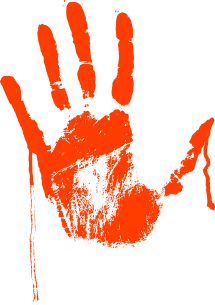Parties to the European Convention on Human Rights have an obligation to carry out effective investigations into attacks perpetrated against journalists. Alerts submitted on the Safety of Journalists Platform reflect concerns about the cases in which these obligations may not have been met.
Several cases concern the Russian Federation and Belarus, which are not Council of Europe member states but are bound by the International Covenant on Civil and Political Rights and other international obligations.
32 cases of impunity for murders of 51 journalists in Europe

Kutlu Adalı | 1996 | Northern part of Cyprus
On 6 July 1996, the Turkish Cypriot journalist Kutlu Adalı was shot dead in front of his house.
Adalı had written critically for the Turkish-language daily Yeni Düzen (New Order) about the immigration policies, smuggling of historical artifacts and the alleged involvement of the “Directorate of Civil Defence Organisation” in the northern part of Cyprus.
The murder investigation was inconclusive and resulted in no convictions.
On 31 March 2005, the European Court of Human Rights ruled that Türkiye had failed to carry out an adequate and effective investigation into the circumstances surrounding the killing, in violation of Article 2 (right to life) and Article 13 (right to an effective remedy) of the European Convention on Human Rights.
In May 2021, the Turkish mob boss Sedat Peker alleged in a YouTube video that a former Turkish Minister of the Interior, Mehmet Ağar, had been involved in Adalı’s killing. Peker explained that, at a meeting with Ağar in Ankara, his brother Atilla Peker had been assigned to carry out the killing, which was ultimately carried out by someone else. Following the video’s release, Atilla Peker was detained, charged with “carrying unlicensed weapons” and released on probation. He asserted that his statements on the killing were not taken under record but that a letter in which he confessed being assigned to the killing and traveling to Cyprus with another military official had been sent to the Public Prosecutor’s Office in Türkiye.
In June, a new investigation into the killing was opened in Istanbul.
A northern Cypriot media outlet published a letter that had allegedly been sent to the journalist and his wife before the murder, threatening them for being “traitors and bad-bloods” and for publishing “against Türkiye and the Turks in the press”.
Alert: Continued Impunity Following Murder of Turkish Cypriot Journalist Kutlu Adalı
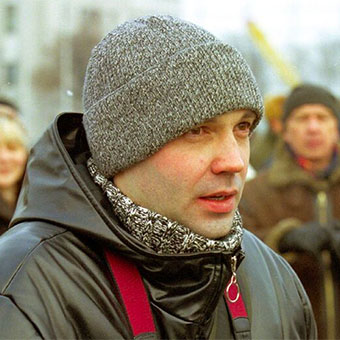
Aleh Byabenin – 2010 – Belarus (Non-CoE member state)
On 3 September 2010, Aleh Byabenin, the founder and director of the news website Charter97.org, was found dead in his house.
The investigation concluded that the journalist had committed suicide. His relatives reported several inconsistencies in the investigation, claiming that his body carried signs of violence, and that the police had conducted only a cursory investigation at the scene. Authorities reopened the investigation but announced later that they had found no evidence of foul play.
Shortly before his death in 2010, the journalist had joined the campaign team of Andrei Sannikov, presidential candidate for the civic movement “European Belarus”.
Alert: 13 Years of Impunity after Murder of Belarusian Journalist Aleh Byabenin

Jarosław Ziętara | 1992 | Poland
On 1 September 1992, Jarosław Ziętara disappeared in Poznań on his way to the editorial offices of Gazeta Poznańska. Prior to his disappearance, the journalist had published investigative articles about alleged irregularities and corruption connected to the privatization of state-owned companies, as well as reports about the alleged role of the political elite and the secret services in these scandals. He also covered human trafficking and smuggling along the German-Polish and Belarusian-Polish borders.
After years of delays in investigating the journalist’s disappearance and suspected death, Krakow prosecutors in 2011 reopened the investigation and determined that Ziętara had likely been killed in connection with his reporting on alleged corruption. Charges were brought in 2014 against the former Senator and entrepreneur Aleksander Gawronik and two security guards from the Poznań holding company Elektromis. According to the prosecution, Gawronik instigated the murder to prevent Ziętara from reporting on his business; the two security guards, posing as police officers, tricked the journalist into entering a car, and handed him over to unidentified persons who killed him, destroyed his body and hid his remains.
In October 2022, the Poznań District Court acquitted the security guards of kidnapping, deprivation of liberty and aiding and abetting the murder. On 19 January 2024, the Poznań Court of Appeals also confirmed Gawronik’s acquittal, due to a lack of evidence. The prosecution announced appealing the ruling to the Supreme Court.
The whereabouts of Ziętara’s body remain unknown.
Alert: Impunity in 1992 Killing of Polish Journalist Jarosław Ziętara
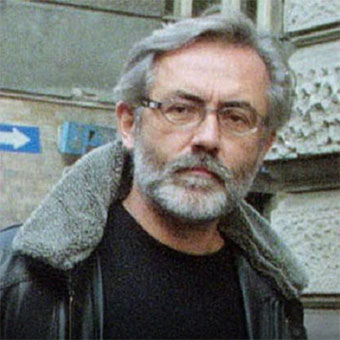
Slavko Ćuruvija | 1999 | Serbia
On 11 April 1999, Slavko Ćuruvija, owner of Serbia’s first private daily Dnevni Telegraf and the weekly magazine Evropljanin, was shot and killed outside his home near the Parliament of Yugoslavia. The journalist was an outspoken critic of the regime of the former Serbian President Slobodan Milošević and had been persecuted by Serbian authorities for his journalistic work.
On 5 February 2019, the Higher Court in Belgrade convicted four former RDB officers for their role in the killing. The former head of the RDB, Radomir Marković, and the RDB officer Milan Radonjić each received 30-year prison sentences, while the agents Ratko Romić and Miroslav Kurak were sentenced to 20 years. The indictment said at the time that Marković abetted the crime that was ordered by an “unknown person”, while Romić, Radonjić, and Kurak helped organise and execute it. In 2020, the Belgrade Court of Appeals overturned the previous verdicts, ruling that they violated the rules of criminal procedure. The Higher Court in Belgrade on retrial convicted the same officers again and sentenced them to the same prison sentences. However, on 2 February 2024, the Belgrade Court of Appeals announced the full acquittal of four former members of the State Security Service (RDB) who were convicted of the murder, “in the absence of direct and indirect evidence that would reliably confirm that the defendants Marković, Radonjić, Kurak and Romić are the perpetrators of this criminal act”.
Alert: Defendants in the 1999 Murder of Journalist Slavko Ćuruvija Acquitted
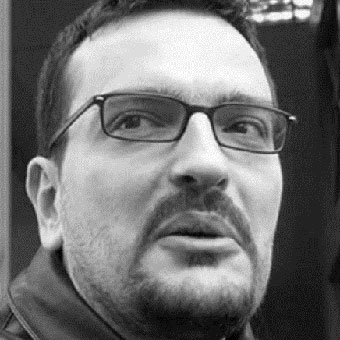
Sokratis Giolias – 2010 – Greece
On 19 July 2010, Sokratis Giolias was shot dead by unidentified men who lured him out of his apartment in Athens.
Giolias was a radio journalist and TV editor who started the news website Troktiko in 2007. The reporter had been about to publish the results of an investigation into corruption. Giolias had been increasingly receiving threats in the last two years.
The Athens police established that the guns used in the murder had been used in attacks claimed by the Sect of Revolutionaries, a militant anarchist group. The police also found the burned remnants of what they believed was the killers’ getaway car.
One week after the attack, the Sect of Revolutionaries claimed responsibility for the murder, a claim that raised suspicion about its authenticity. In its letter, the group announced that Giolias was “the first of several prominent journalists and publishers who will be attacked”.
A report by the initiative ‘A Safer World For The Truth’ published in October 2023 concluded that there were “crucial omissions and delays in the early stage of the official investigation” and a lack of transparency.
Alert: Impunity in Killing of Greek Investigative Journalist and Broadcaster Sokratis Giolias
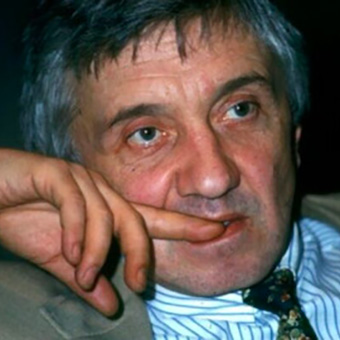
Yuri Shchekochikhin | 2003 | Russian Federation* (Non-CoE member state)
On 3 July 2003, Yuri Shchekochikhin died 12 days after being hospitalised in a Moscow clinic, at the age of 53, of what doctors said was an acute allergic reaction. He died a few days before his scheduled departure to the United States, where he planned to meet with FBI investigators. Shchekochikhin, at the time deputy editor of Novaya Gazeta, was also a writer, a Member of the State Duma and a member of its Commission on Combating High-level Corruption in Government.
According to Novaya Gazeta, his medical documents were either lost or destroyed by the authorities. Several stakeholders, including civil society organisations, political allies and the journalist’s family and colleagues, have suspected that Shchekochikhin was poisoned to prevent him from further reporting on alleged corruption involving officials from the Federal Security Service (FSB) and the Prosecutor General’s Office of the Russian Federation.
In 2008, the Investigative Committee of the Russian Federation ordered the opening of an investigation into suspected murder (Article 105.1 of the Russian Criminal Code) but closed the case in April 2009, after announcing that the forensic examination had failed to identify “traces of poisoning or damage to the body that would indicate Yuri Shchekochikhin died a violent death”.
No one has been prosecuted or convicted to date, and those responsible for Shchekochikhin’s murder continue to evade justice.
Alert: Impunity in the Case of the Death of Russian Investigative Journalist Yuri Shchekochikhin
* Alert subsequent to the cessation of the membership of the Russian Federation in the Council of Europe on 16 March 2022 pursuant to Committee of Ministers decision CM/Del/Dec(2022)1428ter/2.3. The Partners Organisations to the Platform decided on 31 March 2022 to continue publishing information relating to serious concerns about media freedom and journalists’ rights in the Russian Federation.
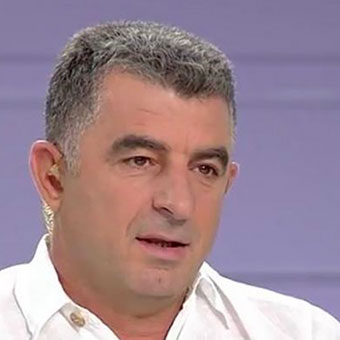
Giorgos Karaivaz| 2021 | Greece
On 9 April 2021, the Greek television reporter Giorgos Karaivaz was gunned down outside his home. Police said the veteran crime reporter was shot as he returned from a shift on a daytime show on Star TV, when he was ambushed by two men on a scooter and shot at least six times, killing him instantly. According to witnesses, the murder took place at around 2.30pm as the journalist was getting out of his car near his house in the Athens suburb of Alimos.
The Attica Security Division launched a manhunt for the suspects and the Directorate of Forensic Investigations cordoned off the scene for preliminary investigations. Authorities are working to establish the motive of the attack and whether it was related to his journalistic work. Deputy Minister for Citizen's Protection Lefteris Economou suggested a link between the killing and organised crime. Police said they collected 12 bullet casings at the scene. They believe the gunman, who was the passenger on the scooter, used a silenced weapon as people in the neighbourhood at the time did not hear loud gunshots. Reports suggest it was a handgun.
Karaivaz reported on crime and police for several Greek newspapers and broadcast media. Since 2017 he worked at Star TV and regularly featured on the panel of its daily show Truths with Zina. He was a long-term contributor to the newspaper Eleftheros Typos and founded news website bloko.gr, which reports on crime. According to media reports, police sources confirmed that the journalist had not reported any threats against him nor asked for police protection.
The Journalists’ Union of Athens Daily Newspapers (JUADN) said it was “shocked” by the murder. A government spokesperson said the killing “shocked us all”.
Alert: Impunity for Murder of Veteran Crime Reporter Giorgos Karaivaz
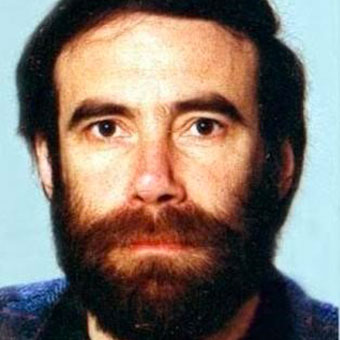
Milan Pantić| 2001 | Serbia
Close to 22 years since the anniversary of the killing of Serbian journalist Milan Pantić in Serbia, no one has been prosecuted and convicted and those responsible continue to evade justice.
On 11 June 2001 Serbian journalist Milan Pantić, a correspondent at the daily newspaper Vecernje Novosti, was killed by unknown assailants after being struck on the head with a blunt object outside his home in the city of Jagodina in central Serbia. An eyewitness saw two attackers - both aged 20 to 30 and wearing masks - running from the scene, sources at Vecernje Novosti said. The attack is widely believed to have been carried out as retaliation for his reporting on corrupt privatisation deals following the fall of the Milosevic regime. Despite efforts by the Serbian Commission for investigating the killings of journalists, which has followed the case since its establishment in 2013, no progress has been made in his case. According to the Commission, Milan Pantić was killed due to his journalistic investigations into allegedly corrupt privatisation of a brewery and a cement factory and on the local drugs trade. In 2015, the names of two people suspected to have been involved were leaked to the press, yet no indictments followed. In 2018, the Serbian Commission for investigation of killings of journalists called on authorities to assign a Special Prosecutor to this case.
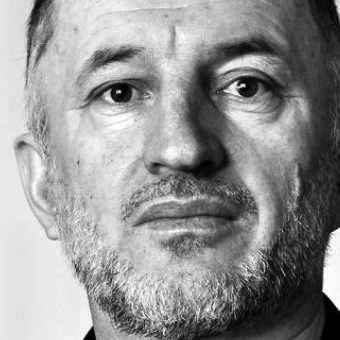
Akhmednabi Akhmednabiyev | 2013 | Russian Federation (Non-CoE member state)
The deputy editor of the daily “Novoye Delo” and a correspondent of the Kavkazskiy Uzel news website, Akhmednabi Akhmednabiyev was gunned down as he was leaving his home in Semender, a suburb of Dagestan’s capital, Makhachkala, on 9 July 2013.
According to media reports, Akmednabiyev was in his car, just 50 meters from his home, when the unknown attackers began shooting, killing him at the scene. There was no shortage of warning signs.
In 2009, his name was on a hit-list circulating in Makhachkala that accused several independent journalists, human rights defenders and lawyers of colluding with Dagestan’s armed Islamists and threatened them with death to avenge the murders of policemen. One of these journalists was gunned down in December 2011.
Known for covering human rights violations, corruption and the persecution of religious minorities, Akhmednabiyev had received many other threats and had narrowly escaped a murder attempt on 11 January 2013, when four shots fired in his direction only just missed him. Nonetheless, he was not given any protection after this shooting, which the prosecutor’s office did not even treat as a murder attempt.
The investigation into the journalist's murder was closed a year later, without any arrests.
Alert: Independent Journalist Akhmednabi Akhmednabiyev Shot Dead in Daghestan, Russia
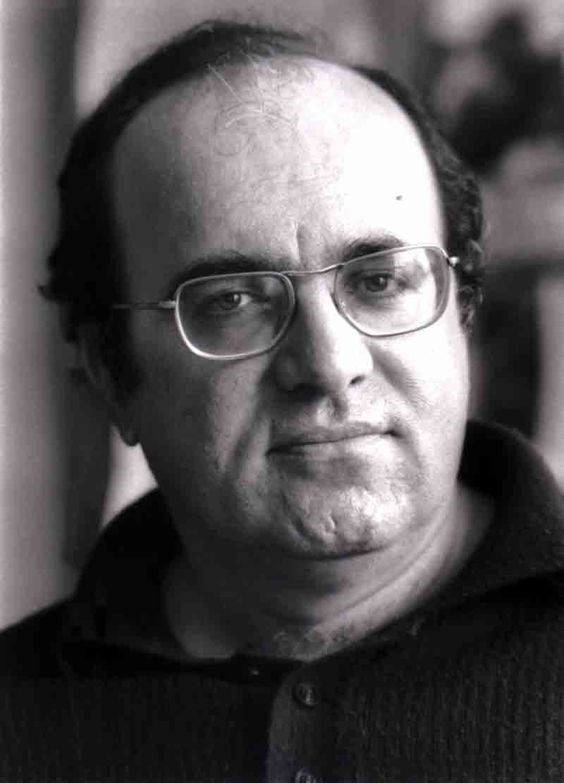
Uğur Mumcu | 1993 | Türkiye
On 24 January 1993, Uğur Mumcu was killed by a car bomb in front of his house. Mumcu was one of Türkiye’s top investigative reporters and a columnist for Cumhuriyet, working on fundamentalist groups, drug trafficking and corruption.
Mumcu’s killing remains unsolved. Although several fundamentalist groups claimed the murder and the public authorities pledged to bring the perpetrators to justice, only the bomb maker, Ferhan Özmen, and the lookout, Necdet Yüksel, were sentenced to life imprisonment in 2005.
Oğuz Demir, suspected of having placed the bomb under the car, remains at large. Despite his ongoing trial in absentia, Demir hasn’t been caught and it is unclear whether he is being actively searched for. Local news reported that, when a court requested in 2019 information on Demir’s whereabouts, the Chief Prosecutor’s Office replied that it faced a heavy workload and that the request should be put to the police. No middleman or instigator of the crime has been identified.
In May 2021, the mob boss Sedat Peker alleged in a YouTube video that a former Turkish Minister of the Interior, Mehmet Ağar, had been involved in the murder. No official statement was made, and no investigations were opened following these allegations.
Alert: Continued Impunity Following the Murder of Turkish Journalist Uğur Mumcu

Ján Kuciak | 2018 | Slovak Republic
On 21 February 2018, investigative journalist Ján Kuciak, who had been reporting for the news website Aktuality.sk, was shot dead with his fiancée, Martina Kušnírová at his house in Veľká Mača, near Bratislava. Kuciak was known for his investigations on tax fraud and suspicious real estate businesses. At the time of his murder he was reportedly investigating mafia dealings in Slovakia, including several businessmen with connections to top-level Slovak politicians.
The murders sparked extensive demonstrations in Slovakia, with protesters demanding justice for Kuciak and an end to corruption, that eventually led to the resignation of Prime Minister Robert Fico and his Cabinet.
On 30 December 2019, Zoltán Andruskó confessed his involvement in this murder and the Specialised Criminal Court in Pezinok sentenced him to 15 years in jail. Andruskó admitted passing the murder order from Alena Zsuzsová (close collaborator of Marián Kočner) to the hitmen, Miroslav Marček. Marček eventually confessed killing Kuciak and his fiancée and was sentenced to 23 years of prison. Tomáš Szabó, who was accused of facilitating the murder, was convicted and sentenced to 25 years in prison.
However, on 3 September 2020, co-defendant Alena Zsuzsová and businessman Marián Kočner, who were accused of masterminding the murder of the journalist and his fiancée, were both acquitted. The Court in Pezinok cited a lack of evidence. Slovak media have described the verdict as “shocking”, given the existing evidence against Kocner and Zsuzsova that was presented during the trial. Ján Kuciak was the first journalist killed for his work in Slovakia and in in Bratislava a memorial has been set up in his name.
In view of this outcome, the Partner Organisations decided, on the International Day to end impunity for crimes against journalists on 2 November 2020, to move the alert to the category of Impunity. They emphasize that in order to prevent impunity, every person involved in a crime must be brought to justice, and convicted.
On 15 June 2021, the Supreme Court ordered retrial of the case, overturning the acquittals of Marián Kočner and Alena Zsuzsová by the Pezinoc Special Criminal Court, for “failing to consider all the evidence and circumstances of the case”.
Alert: Slovak Investigative Journalist Jan Kuciak Killed at Home
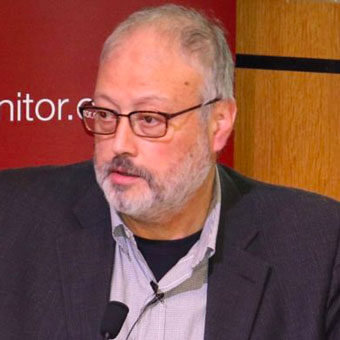
Jamal Khashoggi | 2018 | Saudi Arabia Consulate in Türkiye
The Partner Organisations decided to move this case to the category of Impunity, denouncing the inadequate investigation and trial in Saudi Arabia, which failed to meet international standards and to deliver credible accountability. Saudi Arabia also failed to meet its obligation to co-operate with the Turkish authorities in the investigation of the killing. Following a failure of justice in the Saudi courts, the on-going Turkish trial is an opportunity to deliver justice in Jamal Khashoggi’s case.
On 2 October 2018, the Saudi journalist Jamal Khashoggi disappeared during a visit to the Saudi consulate in Istanbul, Türkiye, where he went to complete some routine paperwork.
Jamal Khashoggi had been close to the Saudi royal family and also served as an adviser to the government, before going into self-imposed exile in the United States in 2017. From there, he wrote a regular column in the Washington Post in which he often criticised the policies of Crown Prince Mohammed bin Salman.
On 22 October, Saudi Arabia admitted that the journalist had been killed in the consulate by a “rogue operation”, arresting 18 people suspected of being involved in the operation and firing top security officials. On 27 December 2019, the Riyadh Criminal Court ruled that the killing was not premeditated and convicted eight men in connection with the crime, sentencing three to prison terms and five to death for "committing and directly participating in the murder of the victim".
The President of Türkiye, Recep Tayyip Erdogan called the killing a political murder, assessing these measures as insufficient. He stated that the Turkish intelligence had sufficient evidence to prove that the murder had been planned.
In March 2020, the Istanbul prosecutor indicted former deputy head of Saudi Arabia's general intelligence, Ahmed al-Asiri, and former royal court adviser Saud al-Qahtani for instigating "premeditated murder with monstrous intent", and 18 other men on charges of carrying out the murder. The trial in absentia started in July 2020.
In May 2020, a son of Jamal Khashoggi announced that he and his siblings had forgiven the men who killed their father, effectively sparing the killers death penalty.
On 7 September 2020, the Riyadh Criminal Court issued final verdicts, sentencing to prison terms eight defendants whose names remain undisclosed. Five of them received the maximum sentence of 20 years in prison. The media freedom organisations as well as the Turkish authorities expressed their dissatisfaction with the ruling, pointing to the many questions left unresolved with regard to Jamal Khashoggi’s body, the motive for the murder, and the identity of the mastermind. The Turkish authorities urged the Saudi authorities to cooperate with the ongoing investigation in Türkiye. The UN Special Rapporteur on extrajudicial, summary or arbitrary executions, Agnes Callamard, called the Saudi investigation, trial, verdict and pardon predetermined steps leading to “the antithesis of justice”.
On 20 October 2020, Khashoggi’s fiancée Hatice Cengiz and Democracy for the Arab World Now (DAWN), an advocacy organisation Khashoggi founded before he died, sued Saudi Crown Prince Mohammed bin Salman and over 20 other Saudis for damages over their involvement in Khashoggi’s killing before a District of Columbia federal court. The lawsuit was filed under the Torture Victim Protection Act and the Alien Tort Statute, which give United States courts jurisdiction over certain types of offences located in other countries.
Alert: Saudi Journalist Disappears During Visit to Saudi Consulate in Türkiye
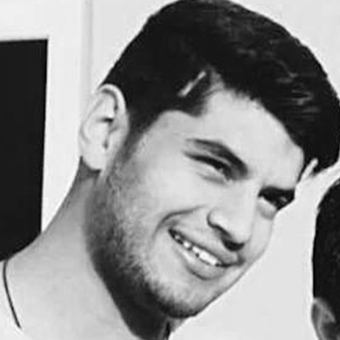
Photo: Azadiya Welat
Rohat Aktaş | 2016 | Türkiye
Rohat Aktaş, news editor and reporter for the Kurdish-language daily Azadiya Welat, was shot in the arm on 22 January 2016 while covering clashes between Kurdish separatists and Turkish forces in Cizre, Türkiye. He was trapped in a basement and, by 4 February 2016, his editor had not heard from him for five days.
On 25 February 2016, local media reported that the dead body of Aktaş had been identified by the forensic authorities. A Turkish court issued a detention warrant for Aktaş in March 2017. No investigation into his death is being reported.
Alert: Journalist Rohat Aktaş, Injured while Reporting in Cizre, Dies
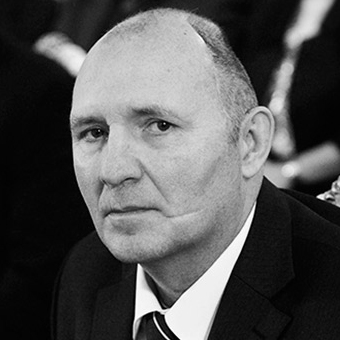
Mikhail Beketov | 2013 | Russian Federation (Non-CoE member state)
Mikhail Beketov, the former editor of the newspaper Khimkinskaya Pravda died of heart failure in a Moscow hospital on 8 April 2013.
In November 2008, Beketov was the victim of a savage beating by unknown attackers who left him for dead out in the cold. He lost three fingers and part of his leg and suffered long-term brain damage. The journalist had a breathing tube inserted in a life-saving surgery following the assault. However, the operation also left scars that caused food to block the airflow to his lungs, eventually leading to heart failure.
In 2012, he was awarded a journalism prize by Russian President Vladimir Putin who promised that his attackers would be found and prosecuted but, to date, no one has been arrested.
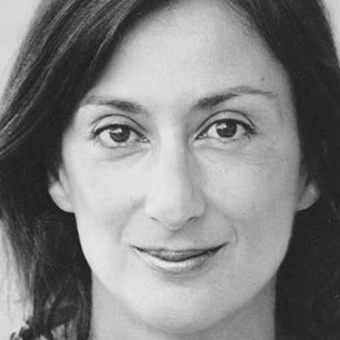
Daphne Caruana Galizia | 2017 | Malta
On 16 October 2017, Daphne Caruana Galizia was murdered near her family home at Bidnija, Malta, by a car bomb. She was known for her investigative journalism and her blog “Running Commentary”, one of the most widely read websites in Malta. In 2016, she had been named by Politico one of the “28 people who are shaping, shaking and stirring Europe”, after she had revealed the involvement of Maltese politicians in the “Panama Papers” scandal.
In February 2017, her bank accounts were frozen after the Minister of the Economy and his adviser filed libel suits over a blog post exposing that they had visited a brothel while on official mission in Germany.
On 4 December 2017, the police arrested ten suspects, three of whom (Alfred and George Degiorgio and Vince Muscat) were charged on 16 July 2019 with murder, criminal conspiracy, criminal use of explosives and membership of organised crime.
On 20 September 2019, following Resolution 2293(2019) by the Parliamentary Assembly of the Council of Europe requesting an independent public inquiry into the murder within three months, the government of Malta ordered a public inquiry.
On 14 October 2022, Alfred and George Degiorgio, accused of assassinating Daphne Caruana Galizia, pleaded guilty to all six charges they faced. On the same day, the Criminal Court sentenced them to 40 years each for their role as hitmen in the assassination of the journalist.
Alert: Investigative Journalist Daphne Caruana Galizia Killed by Car Bomb
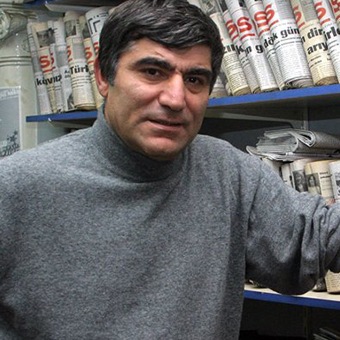
Hrant Dink | 2007 | Türkiye
On 19 January 2007, Hrant Dink, the Turkish-Armenian journalist and founder of Agos newspaper, was shot dead at 15:05 on the street in front of his office in Istanbul. The murderer, a 17-year-old Turkish nationalist, and some of his accomplices were apprehended and imprisoned but not all parties involved in the crime have been investigated.
On 14 September 2010, the European Court of Human Rights ruled in the case of Dink v. Türkiye that Türkiye had failed to protect Hrant Dink’s life and to adequately investigate into his death, in violation of Article 2 (right to life), Article 10 (freedom of expression) and Article 13 (right to an effective remedy) of the European Convention of Human Rights.
On 17 July 2014, Türkiye’s Constitutional Court ruled that the investigations carried out after the judgment of the European Court of Human Rights had not remedied the outstanding issues, and that civil servants and institutions must be investigated for their alleged roles in Dink’s murder.
On 1 July 2019, upon a re-opened investigation, the İstanbul 14th Court of Serious Crime ruled that Dink’s murder had been an “organised crime”, sending seven defendants who it found had failed to protect the journalist and forged reports to prison sentences, ranging from 2 years and 9 months up to 99 years and 6 months. The lawyers of Dink’s family have appealed the verdict to the Supreme Court of Appeals, as the defendants should have been convicted of membership of an “armed terrorist organisation”, rather than of an “illegal criminal organisation”.
Alert: Masterminds Still not Condemned, Ten Years after the Assassination of Journalist Hrant Dink
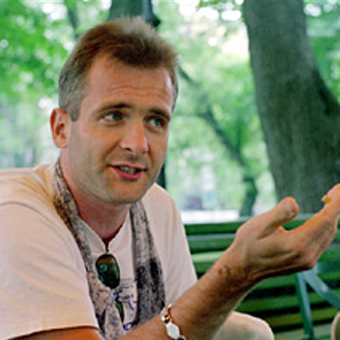
Georgiy Gongadze | 2000 | Ukraine
On 16 September 2000, Georgiy Gongadze disappeared; his beheaded body was found six weeks later. The journalist had been investigating corruption within the Government and in the Presidency of then President Kuchma. In the months leading to his death, Gongadze reported that he was under surveillance and had been receiving threats.
After years of investigations, four former officers of the Ukrainian Secret Service were convicted, but no one was sentenced for ordering and instigating his killing. Over the last 16 years, the lack of an effective investigation into Gongadze’s kidnapping and murder has had a heavy impact on the Ukrainian society and on the journalistic community at large.
On 8 November 2005, the European Court of Human Rights ruled in the case of Gongadze v. Ukraine that Ukraine had failed to protect Gongadze’s life and to adequately investigate into his death, in violation of Article 2 (right to life) and Article 13 (right to an effective remedy) of the European Convention of Human Rights.
On 23 January 2013, the High Specialised Court for Civil and Criminal Cases convicted Oleksiy Pukach, the former head of the surveillance department in the Ministry of Interior, of abuse of authority, excess of official powers and premeditated murder of Gongadze, and sentenced him to life imprisonment. Pukach has appealed the judgment on matters of law before Ukraine’s Supreme Court.
Alert: Continuing Impunity in the Killing of the Ukrainian Investigative Journalist Georgiy Gongadze
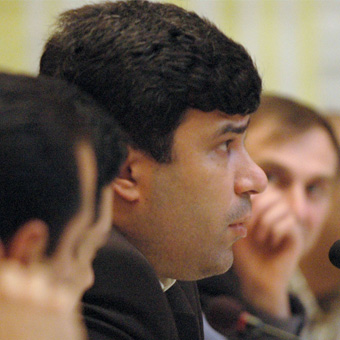
Elmar Huseynov | 2005 | Azerbaijan
On 2 March 2005, Elmar Huseynov, an Azerbaijani journalist working for the “Monitor” magazine, was gunned down in front of his apartment in Baku. Prior to this, the journalist had received threats related to his work. In April 2005, Azerbaijani investigators announced the identification of six Georgian suspects related to this murder, which was re-qualified from “premeditated murder” to an “act of terrorism” aiming to destabilise the country. The mastermind behind the murder of the journalist has not been brought to justice.
On 13 April 2017, the European Court of Human Rights ruled in the case of Huseynova v. Azerbaijan that Azerbaijan had failed to properly investigate into Huseynov’s murder, in violation of Article 2 (right to life) of the European Convention of Human Rights.
Alert: Twelve Years of Impunity in the Case of the Murder of Elmar Huseynov
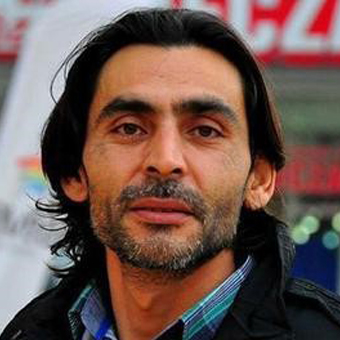
Photo: Twitter.Raqqa_SL
Naji Jerf | 2015 | Türkiye
Syrian journalist Naji Jerf was gunned down in Gaziantep, Türkiye, on 27 December 2015. He was the founder and editor of the magazine Henta, and the author of several documentary films on Daesh and the Syrian government, including “ISIS in Aleppo”, a documentary on the execution of Syrian activists by Daesh. Jerf had just obtained a visa in France over threats since the release of his documentary and was about to leave Türkiye with his family.
On 9 June 2017, a court in the Gaziantep Province sentenced Yusef Hamed Al-Shefreihi twice to life prison, over the murder of Jerf and an “attempt to overthrow the constitutional order”. Three suspects (Farag Al-Hussein, Ali Cerkez and Reyad Matar) were acquitted over a lack of material evidence.
The investigation and the trial have been criticised for leaving questions open about the motive for the murder, Al-Shefreihi’s profile and the possible involvement of other persons.
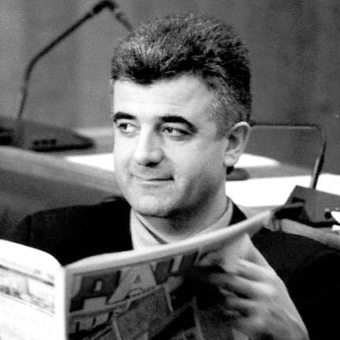
Dusko Jovanovic | 2004 | Montenegro
On the evening of 27 May 2004, journalist Dusko Jovanovic, editor-in-chief of the opposition daily Dan in Montenegro, was shot dead while he was leaving his office in Podgorica. Unidentified individuals shot him in the head and chest with an automatic rifle as he was entering his car just. Both Dan and Jovanovic's family reported that the editor had received numerous death threats, and the newspaper's office in Podgorica was set on fire in April 2003.
On 9 June 2004, police arrested Damir Mandic, a local figure belonging to organised crime. In October 2004, prosecutors charged Mandic with murder, citing evidence linking him to the vehicle used in the crime. In April 2009, Mandic was sentenced to 30 years in prison for being an accomplice in Jovanovic's murder.
The lawyer representing the Jovanovic family and Dan staff has criticised the police investigation for failing to identify Mandic's accomplices; not identifying who ordered the killing; and not investigating possible links between Mandic and Montenegrin authorities.
On 22 October 2015, the High Court of Podgorica found Mandić also guilty of aggravated homicide, and sentenced him to 18 years of imprisonment. The Court of Appeal confirmed the judgment on 2 March 2016, and Mandić’s appeal on matters of law before the Montenegrin Supreme Court was rejected on 22 June 2016.
According to the Government, the High State Prosecutor in Podgorica and the Special State Prosecutor pursue investigations to identify Mandić’s accomplices, and have requested international legal assistance from the Forensic Science Institute at Wiesbaden (Germany).
Alert: Impunity in the Case of the Murder of Dusko Jovanovic
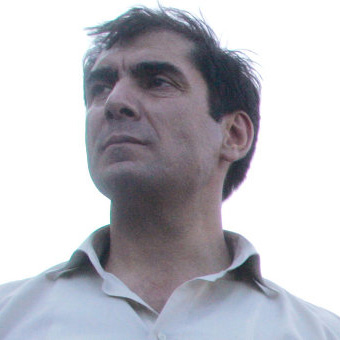
Gadzhimurad Kamalov | 2011 | Russian Federation (Non-CoE member state)
On 15 December 2011 in Makhachkala, the capital city of the Republic of Dagestan, Russia, Gadzhimurad Kamalov, founder and editor of the Chernovik newspaper in Dagestan, was shot dead by an unknown assailant as he left his office. A vocal critic of corruption and abuse of power, Kamalov and other journalists at Chernovik, had previously experienced a wide-range of attacks, from harassment, threats, and physical violence, to criminal charges and confiscation of copies of the newspaper.
The Dagestani authorities have failed to find any suspect or bring charges in this case. Investigators have failed to explore leads brought forward by Kamalov’s family, and refused their requests for the case to be investigated by Russia’s Federal Security Service.
Alert: Continued Impunity for Murder of Journalist Gadzimurad Kamalov in 2011
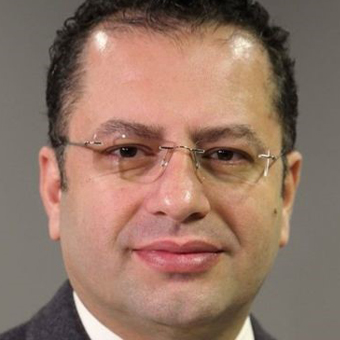
Photo: Saeed Karimian/GemTV
Saaed Karimian | 2017 | Türkiye
Saaed Karimian, the Iranian-born British founder and chairman of General Entertainment Media (GEM) TV, and his business partner were shot dead by masked individuals in Istanbul, Türkiye, on 29 April 2017. The car and the gun used in the attack were later found burnt.
GEM TV broadcasts foreign films and television programmes dubbed into Farsi language over satellite channels that, despite an official ban for “showing content that goes against Islamic values”, are popular in Iran. In 2016, a Tehran Revolutionary Court sentenced Karimian in absentia to six years in prison over charges of “acting against national security” and “propaganda against the state”. According to his relatives, Karimian had been threatened by the Iranian government and had considered moving to London over these threats.
Upon investigation by the Turkish police, Naci Sharif Zindaşti, an Iranian involved in narcotics and crime, was charged with instigating the murder of Karimian. On 11 October 2018, an Istanbul court released Zindaşti over the lack of material evidence, ordering his judicial control and an international travel ban. It is not being reported that any other perpetrator was brought to justice.
Alert: Founder and Chairman of the Iranian GEM TV Company Shot Dead
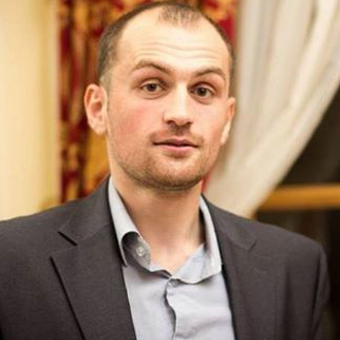
Timur Kuashev | 2014 | Russian Federation (Non-CoE member state)
Timur Kuashev, the correspondent of Dosh, a magazine which covers mainly the Russian Caucasus went missing from his home on 31 July 2014. His body was discovered the following day in a suburb of Nalchik, the capital of the autonomous Kabardino-Balkar Republic. Kuashev was known for his investigations into abuses by the security forces in the course of anti-terrorism operations. He had received numerous threats and wrote about them in an open letter he published in April 2013, saying he was concerned for his life. No investigation into the case is being reported.
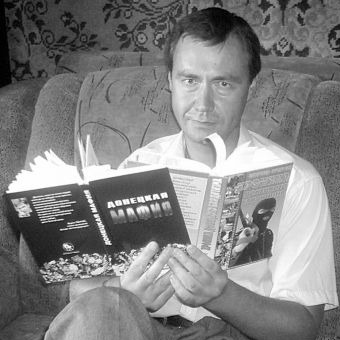
Oleksandr Kuchynsk | 2014 | Ukraine
57-year-old Oleksandr Kuchynsk, a senior journalist editor of Criminal Express, a newspaper in Donetsk covering crime, was found murdered along with his wife on 29 November 2014 in the village of Bogorodychne near Slovyansk in war-torn Donetsk Oblast, according to police sources.
Officials of the Interior Ministry were quoted as saying that the couple was stabbed to death. Media reports added that Kuchynsk had gained a reputation from his investigations into the Donbass mafia.
According to the Government, the Sloviansk police is investigating the double murder, and a notice of suspicion was issued against a person on 30 October 2015. The investigation is pending in search for the suspect.
Alert: Senior Journalist Oleksandr Kuchynsk Killed in Donetsk, Ukraine
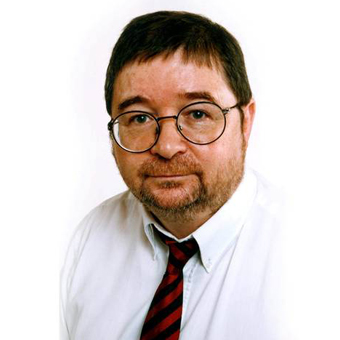
Picture: Press Eye
Martin O’Hagan | 2001 | United Kingdom
Martin O’Hagan, a reporter with the Sunday World, was shot dead on his way home with his wife in Lurgan, Armagh County, Northern Ireland, on 28 September 2001. The “Red Hand Defenders”, an operational name for the Loyalist Volunteer Force (LVF), claimed responsibility for the murder.
O’Hagan investigated the activities of both Catholic and Protestant paramilitary groups. In 1992, Belfast loyalist Billy Wright, then a member of the Ulster Volunteer Force, had attempted to have him killed. It has long been suspected that those who ordered his killing were paid police informants linked to the LVF. According to media, O’Hagan was targeted by the LVF for exposing the narcotics network they controlled, as well as assassinations and intimidation rackets they orchestrated.
The National Union of Journalists (NUJ) has been calling the British and Irish governments to appoint a panel of independent, international experts to investigate both the murder and the failed police investigation.
Alert: Continued Impunity for Murder of Journalist Martin O'Hagan in 2001

Anna Politkovskaya | 2006 | Russian Federation (Non-CoE member state)
On 7 October 2006, Anna Politkovskaya, a Novaya Gazeta journalist and one of Russia’s most respected investigative reporters, was found shot dead in a presumed contract killing in her apartment block in central Moscow. On 9 June 2014, after several arrests, releases and retrials, the Moscow’s highest criminal court sentenced five men to prison for the murder of the journalist. Two organisers of the team that murdered Anna Politkovskaya received life sentences in prison.
However, the investigation has still not revealed who stood behind the killing and the motive for the murder. Ms Politkovskaya wrote about human rights abuses in Chechnya and was known for her criticism of the policies of the Russian authorities.
On 17 July 2018, the European Court of Human Rights ruled in the case of Mazepa and Others v. Russia, that the authorities had failed to carry out an effective investigation, in violation of Article 2 (right to life) of the European Convention of Human Rights.
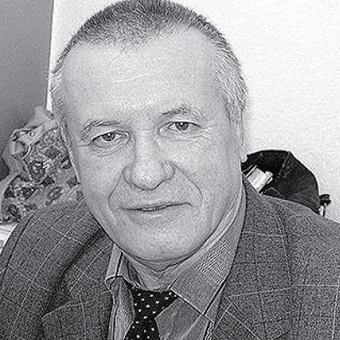
Nikolai Potapov | 2013 | Russian Federation (Non-CoE member state)
Nikolai Potapov, the 66-year old founder and editor of the Selsovet (Village Council) newspaper, was gunned down in the Stavropol region on 18 May 2013. The newspaper exposed alleged corruption by local authorities, particularly with respect to land deals in which officials were accused of transferring state property to criminal gangs in neighbouring Caucasus regions. The newspaper’s uncompromising stance was the most likely motive for Potapov’s killing.
Authorities took suspects into custody shortly after the crime and in mid-August they said they had identified the mastermind behind the killing, but they did not release that person’s name.
Alert: Veteran Journalist Nikolai Potapov Gunned Down in Selsovet, Russia
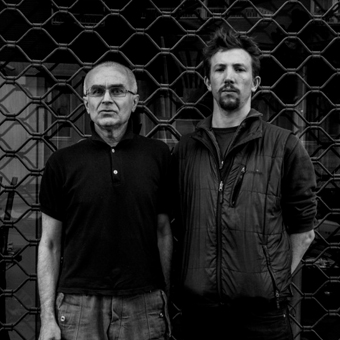
Andrea Rocchelli and Andrei Mironov | 2014 | Ukraine
On 24 May 2014, Italian reporter Andrea Rocchelli, accompanied by Russian journalist and human rights activist Andrei Mironov and French photographer William Roguelon, were the victims of mortar fire on the Sloviansk southern front that killed Rocchelli and Mironov on the spot and inflicted serious leg injuries on Roguelon. These three experienced reporters were in civilian clothes and were travelling by taxi. They had press accreditation and had crossed ten checkpoints prior to the attack. Their presence was known and they could not be mistaken for military personnel or parties to the conflict.
An investigation was launched in Ukraine, which concluded that no evidence exist to find those responsible for this attack. However evidences and testimonies were not taken into account: Roguelon, as well as other key witnesses, was never heard, and the ballistic test did not manage to draw any useful conclusion. A complaint has been filed also by Roguelon in France and by the Rocchelli family in Italy, where the investigation led to the arrest, on 30 June 2017, of Vitaliy Markiv, a 28-year-old Italian-Ukrainian former volunteer fighter with the Ukrainian forces.
On 12 July 2019, an Italian court sentenced Markiv to 24 years of imprisonment, over his role in the killing of Rocchelli. The defendant denied the charges and vowed to appeal the sentence.
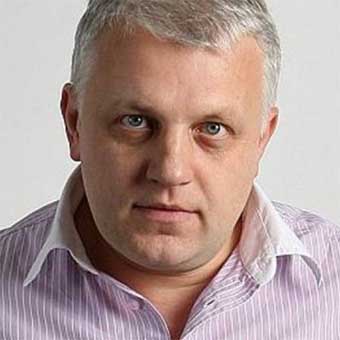
Pavel Sheremet | 2016 | Ukraine
Pavel Sheremet, a journalist working for online investigative newspaper Ukrayinska Pravda and Radio Vesti, was killed in a car explosion on 20 July 2016 in Kyiv. This car belonged to Olena Prytula, editor at Ukrayinska Pravda, but she wasn’t in the car at the time. The journalist was heading to the radio's office to host his morning show when the car exploded. Pavel Sheremet, 44, was a Belarusian journalist and TV host who was imprisoned by the government of Belarus in 1997 and has been working outside of Belarus for a long time. He previously worked in Russia as TV host and journalist before moving to Kyiv.
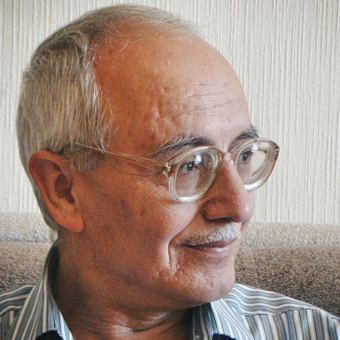
Rafiq Tagi | 2011 | Azerbaijan
Freelance journalist Rafiq Tagi, who contributed to Radio Free Europe’s Azerbaijani Service and was well-known for his criticism of authorities, died in hospital on 23 November 2011. He was receiving treatment having been stabbed in Baku on 19 November by an unknown assailant. In January 2014, Elcin Sadyqov, Tagi’s lawyer, reported that the Azerbaijani Prosecutor-General's Office had informed him in writing that the probe into Tagi's death has ended.
Tagi’s family and rights groups have raised suspicions about the circumstances of his death, stating that he died suddenly as his condition stabilised and noting a lack of security in the hospital prior to his death. They have also raised multiple shortcomings in the process of the investigation into his death.
On 1 November 2014, Tagi’s widow filed application No. 72611/14 against Azerbaijan with the European Court of Human Rights, alleging a violation of Article 2 (right to life), Article 10 (freedom of expression) and Article 13 (right to an effective remedy) of the European Convention on Human Rights.
Alert: Continued Impunity for Murder of Azerbaijani Journalist Rafiq Tagi
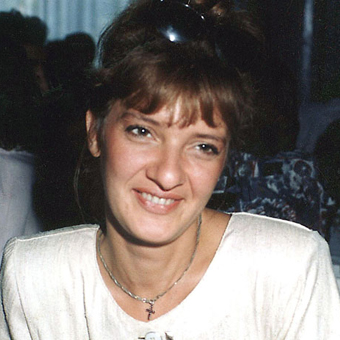
Dada Vujasinović | 1994 | Serbia
Radislava Dada Vujasinović, a Serbian journalist and reporter, was found shot dead at her parents’ home in Belgrade in the early hours of 8 April 1994. Immediately after the body’s discovery, the police said Vujasinović had shot herself with a hunting rifle but the family disputed this, pointing to omissions and inconsistences in the investigation including the failure to question neighbours and analyse evidence found at the scene.
Independent reports finally led to the reopening of the investigation but the Serb authorities were incapable of shedding any light on her death. In January 2013, the Serb government supported the creation of a commission of enquiry into the deaths of Vujasinović and two other Serb journalists, Slavko Ćuruvija and Milan Pantić.
On 16 April 2019, the Government informed that the forensic analysis of available objects and information by the Netherlands Forensic Institute (NFI) did not allow to exclude either murder or suicide as the cause of Vujasinović’s death.
Alert: Impunity in the Case of the Murder of Dada Vujasinović

Photos: Darko Dozet, Jelena L. Petkovic, Foto Uns
Photo courtesy of Dijar Popova.
Photo courtesy of Maliqi's family.
19 journalists in Kosovo* | 1998-2005
19 journalists were killed, kidnapped or abducted in Kosovo* between 1998 and 2005.
Ismail Bërbatovci
Disappeared on 23 July 1998.
Đuro Slavuj and Ranko Peranić
Journalists of Radio Pristina, abducted near Orahovac on 21 August 1998.
Nebojša Radošević and Vladimir Dobričić
Journalist and photographer, abducted near Pristina on 18 October 1998.
Afrim Maliqi
Murdered in Pristina on 2 December 1998.
Enver Maloku
Murdered in Pristina on 11 January 1999.
Ljubomir Knežević
Journalist with “Jedinstvo” and correspondent for the daily “Politika”, abducted in Vučitrn/Vushtrri on 6 May 1999.
Gabriel Grüner, Volker Krämer and Senol Alit
Journalists and translator for the Stern, killed near Prizren on 13 June 1999.
Aleksandar Simović
Journalist with Media Action International, murdered in Pristina on 21 August 1999.
Krist Gegaj
Editor with Radio-Television Pristina, murdered on 12 September 1999.
Momir Stokuća
Photo-reporter, murdered in Pristina on 21 September 1999.
Marjan Melonaši
Journalist with Radio Kosovo, abducted in Pristina on 9 September 2000.
Shefki Popova
Journalist with “Rilindja”, murdered in Vučitrn/Vushtrri on 10 September 2000.
Xhemajl Mustafa
Journalist with the daily “Bota sot”, murdered in Pristina on 23 November 2000.
Bekim Kastrati
Journalist with “Bota sot”, murdered in Lauš near Pristina on 19 October 2001.
Bardhyl Ajeti
Journalist and columnist with “Bota sot”, attacked in Bresaljce near Gnjilane on 3 June 2005, died in Milan on 28 June 2005.
Nobody was ever brought to justice for these crimes.
On 6 June 2018, upon a joint motion of the Association of Journalists of Serbia (UNS), the Independent Journalists’ Association of Serbia (IJAS), the Association of Journalists of Kosovo (AJK) and the Journalists’ Union of Serbia (SINOS), the General Assembly of the European Federation of Journalists adopted a Resolution calling for prompt and effective investigation into these crimes against journalists in Kosovo* and calling on the Serbian and Kosovo* authorities to step up co-operation in the investigation of these cases.
*All references to Kosovo, whether the territory, institutions or population, in this text shall be understood in full compliance with United Nation’s Security Council Resolution 1244 and without prejudice to the status of Kosovo.
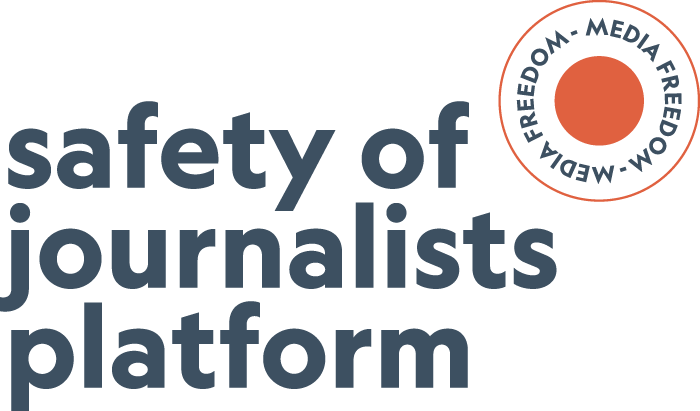
The Platform for the Protection of Journalism and the Safety of Journalists was set up in 2015, in cooperation with prominent European associations of journalists and international NGOs active in the field of the freedom of expression, to facilitate collection and dissemination of information on serious threats to media freedom and safety of journalists in the Council of Europe member states. Its objective is to improve the protection of journalists, better address threats and violence against media professionals and enhance the response capacity within the Council of Europe. Moreover, in 2022, the partner organisations decided to report on the state of press freedom and attacks against journalists in the Russian Federation and in Belarus.
The Platform enables the Council of Europe institutions to be alerted in a timely and systematic way on these threats and to take co-ordinated action when necessary. It also helps the Organisation to identify trends and to propose adequate policy responses.
Partner organisations submit alerts to the platform, informing the Council of Europe bodies on media freedom violations in the member states and other European countries or regions. Each contributing Partner organisation is responsible for information which it posts.
« Under the European Convention on Human Rights, countries have an obligation to carry out prompt, impartial and effective investigations into attacks perpetrated against journalists. Several judgments by the European Court have established that states must fulfil “positive obligations” to carry out effective investigations following the killing or disappearance of a journalist. »*
Over 1600 alerts have been submitted to the platform since April 2015, out of which 32 concern cases of impunity for murders of journalists.
These cases highlight deficiencies in investigations - failure to identify the perpetrators of the crimes, the sponsors, the organisers or the masterminds of these crimes or the failure to secure the evidence concerning these murders. In some cases, the requirements of promptness and reasonable expedition have been ignored. « Impunity therefore often reveals wider, systemic flaws in the rule of law […].Beyond the injustice done to the victims and their families, [impunity] gives rise to a suspicion of official collusion in, or tolerance of, unlawful acts and undermines public confidence in the rule of law.» *
These cases of impunity for murder concern the killing of the following journalists:
Kutlu Adalı (1996, Cyprus); Akhmednabi Akhmednabiyev (2013, Russian Federation); Rohat Aktaş (2016, Türkiye); Mikhail Beketov (2013, Russian Federation); Aleh Byabenin (2010, Belarus); Daphne Caruana Galizia (2017, Malta); Slavko Ćuruvija (1999, Serbia); Hrant Dink (2007, Türkiye); Sokratis Giolias (2010, Greece); Georgiy Gongadze (2000, Ukraine); Elmar Huseynov (2005, Azerbaijan); Naji Jerf (2015, Türkiye); Dusko Jovanovic (2004, Montenegro); Gadzhimurad Kamalov (2011, Russian Federation); Giorgios Karaivaz (2021, Greece); Saaed Karimian (2017, Türkiye); Jamal Khashoggi (2018, Türkiye) ; Timur Kuashev (2014, Russian Federation); Oleksandr Kuchynsk (2014, Ukraine); Ján Kuciak (2018, Slovakia); Uğur Mumcu (1993, Türkiye); Martin O’Hagan (2001, United Kingdom); Milan Pantić (2001, Serbia); Anna Politkovskaya (2006, Russian Federation); Nikolai Potapov (2013, Russian Federation); Andrea Rocchelli and Andrei Mironov (2014, Ukraine); Yuri Shchekochikhin (2003, Russian Federation); Pavel Sheremet (2016, Ukraine); Rafiq Tagi (2011, Azerbaijan); Dada Vujasinović (1994, Serbia); Jarosław Ziętara (1992, Poland)
And
19 journalists (1998-2005, Kosovo*): Ismail Bërbatovci (1998); Đuro Slavuj and Ranko Peranić (1998); Nebojša Radošević and Vladimir Dobričić (1998); Afrim Maliqi (1998); Enver Maloku (1999); Ljubomir Knežević (1999); Gabriel Grüner, Volker Krämer and Senot Alit (1999); Aleksandar Simović (1999); Krist Gegaj (1999); Momir Stokuća (1999); Marjan Melonaši (2000); Shefki Popova (2000); Xhemajl Mustafa (2000); Bekim Kastrati (2001); Bardhyl Ajeti (2005).
* Annual report 2020 by the Platform partner organisations
 European Convention on Human Rights ETS No. 005
European Convention on Human Rights ETS No. 005
 European Court of Human Rights
European Court of Human Rights
See the thematic factsheets with summaries of the relevant case-law:
Impunity against perpetrators of physical attacks on journalists
Attacks on physical integrity of journalists
Positive obligations of member States to protect journalists and the freedom of expression
 Committee of Ministers
Committee of Ministers
Recommendation CM/Rec(2016)4 to member states on the protection of journalism and safety of journalists and other media actors (Adopted by the Committee of Ministers on 13 April 2016)
Appendix – Guidelines on effective investigations to bring perpetrators of such crimes to justice
Declaration on the protection of journalism and other media actors (Adopted by the Committee of Ministers on 30 April 2014)
Guidelines on eradicating impunity for serious human rights violations (30 March 2011)
 Parliamentary Assembly
Parliamentary Assembly
Resolution 2252(2019) “Sergei Magnitsky and beyond – fighting impunity by targeted sanctions” (22 January 2019)
Resolution 2213(2018) “The status of journalists in Europe” (25 April 2018)
Resolution 1675(2009) “The state of human rights in Europe: The need to eradicate impunity” (24 June 2009)
Resolution 1535(2007) "Threats to the lives and freedom of expression of journalists" (25 January 2007)
 United Nations
United Nations
International Covenant on Civil and Political Rights, 1966
Resolution 51/9 on the safety of journalists, United Nations Human Rights Council (6 October 2022)
Resolution 45/18 on the safety of journalists, United Nations Human Rights Council (6 October 2020)
Resolution 76/173 on the safety of journalists and the issue of impunity, United Nations General Assembly (16 December 2021)
The platform was set up in close co-operation with the major associations of journalists and freedom of expression organisations, which were invited by the Council of Europe to be signatories of the Memorandum of Understanding. They are responsible for providing verified information on serious concerns with regard to the media freedom and safety of journalists.



